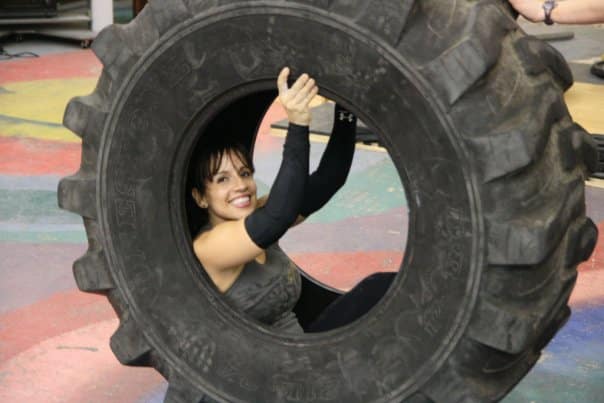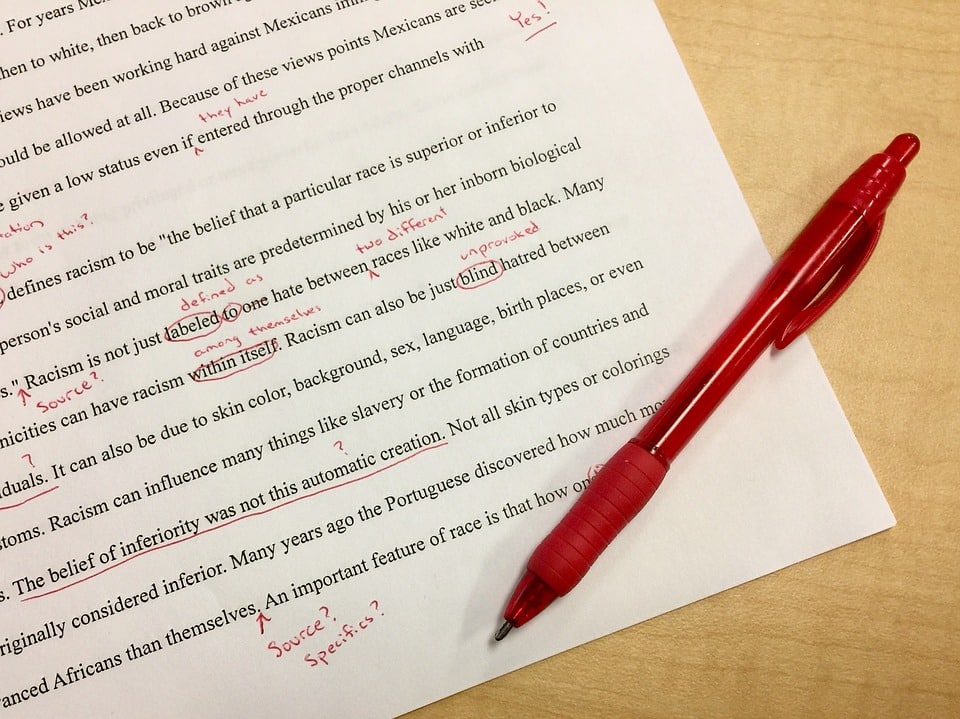Brandy Monge loved working as a lawyer, but she loved fitness even more. She decided to follow her heart and open Crossfit Queens – a risk that paid off in a career that she loves and the ability to make a tangible difference in people’s lives.

I own Crossfit Queens, a Crossfit gym in Astoria, Queens, and have for over five years. Crossfit is all about functional training, so it includes a little bit of everything – weightlifting, gymnastics, and cardiovascular work. Most of the classes are group classes, so you get to know everyone and work out with other people cheering you on and motivating you and a coach making sure you’re doing everything safely.
What I love about it is that anyone can do it – we have people at the gym who are grandmothers and people who were college athletes and everything in-between. I think that it’s that variety that makes Crossfit Queens such a strong community – we work out together, eat together, drink together, compete together, and generally have a great time doing it. The community is what makes Crossfit Queens not just another business.
How would you describe what you do?
I’ve done everything and anything at Crossfit Queens. As a small business owner, you have to get your hands dirty, especially in the beginning. My original business partner and I did all of the coaching, all of the billing, all of the marketing, all of the phone calls, all of the work. Now that the gym has grown, though, I have a staff, so I can focus on what I care about. These days, I coach some classes and focus on promoting the gym by creating events, hosting competitions, and building the sense of community.
What was your journey to doing this kind of work?
I was a lawyer before I was a business owner. I was studying broadcast journalism in college when I noticed my roommate’s LSAT book lying on a table and took a look and thought, I can do this, so I became a lawyer. I really enjoyed it. Office work didn’t appeal to me – I knew I didn’t want to push paper around – but the trial work and the depositions were a lot of fun.

I started out teaching group exercise classes at New York Sports Club – spin, sports conditioning, boot camps. I really loved it and wanted to keep learning and growing, so I was always looking at fitness videos or reading up on strength and conditioning. One day, I saw a video of a woman named Annie doing a pull-up while pregnant. I was immediately fascinated. I learned that she was part of something called Crossfit, a way of working out that emphasizes functional movements, non-traditional workouts, and an inclusive community. I began working out at a Crossfit gym in Brooklyn and eventually became certified as a Crossfit trainer.
At the time, I would work my legal job during the day and spend most of my free time either training or teaching classes instead of going out to eat or drink like all of my friends, but I knew I couldn’t balance both jobs forever. I was going to have to make a choice between the law and the gym. I started looking into opening my own Crossfit gym in Queens, which had no Crossfit boxes at the time, and met another member of the community who also wanted to open a gym. We became business partners and opened Crossfit Queens in 2009.

What is your ethnicity and gender? How has it hurt or helped you?
I’m a Mexican-American woman. As a woman, I’ve definitely run into some backwards attitudes. People sometimes think Oh, you’re the coach? But you’re a woman. It was the same in the law. Most people are great, but there are always those who would assume that I was the assistant or the intern. People expect a man to run a business or a man to be a senior trial attorney more than they do a woman.
As far as being a minority goes, one thing that I’ve really loved about being active and encouraging other people to be active is impacting minority communities and getting people to make exercise and healthy eating part of their lives. I was raised by my father as a single Dad, and he’d give me McDonald’s for breakfast and then I’d go have tacos for lunch. Over time, I saw the impact of those decisions – my Dad has diabetes now. Part of what I want to do with my life is encourage people to live healthier, especially those from minority communities.
Do you love what you do? Do you think you’ve found the right path?
Absolutely. I love empowering people and seeing the results and the changes that they’ve been able to make in their lives as part of this gym and this community. When I see someone with the confidence they’ve never had before or watch someone doing the thing they never thought they could do, it makes me feel great. Every time someone gets their first pull-up or gets in better shape or feels proud about what they’ve accomplished, it reminds me why I do what I do. I also love the people that I work alongside. I have an amazing support system at Crossfit Queens. My coaching staff is made up of humble and hardworking team players – having people like that around me makes all the difference.
What do you need to succeed in this field?
I got lucky, because I really didn’t have any business training. I just got caught up in the community and the passion and the ability to do what I love. The two things that I did do really well were to prepare and have a good support system. You can’t just wake up one day and decide to quit your job to do something like this – you may want to, but you have to be able to support yourself financially first. It took me two years to get to that place, but all the planning I did paid off and it worked.
I also had a good support system in place. The reality is that when you’re doing something outside of the norm, some people will try to discourage you or tell you that your path is too risky. I was lucky to have some friends and family who backed me up. They may have thought I was a little crazy, but they were willing to support me when I made a decision that wasn’t exactly the safe choice.
What is the single most important thing you have learned outside of school about the working world?
You can’t do it all. As a business owner, you may start out doing everything, but once your business grows, you can’t. So you have to figure out what you’re really good at and what you like doing. Some aspects of owning a business I never loved, like bookkeeping, and I had to recognize that and surround myself with people who were strong in the areas that I don’t like or don’t excel at. Having a partner who complements your skills and interests is key.
What kind of challenges do you face and what makes you just want to quit?
Sometimes it’s hard to balance the day-to-day work with the long-term growth of the business. Growth in general is harder than people think. As you grow and change, sometimes people aren’t happy with the changes or don’t like the way you’ve chosen to grow. It can be hard to make those decisions, especially as a Crossfit owner, because Crossfit gyms are communities. Every decision I’ve made has affected people that feel like my family. I think it’s that way for many small business owners, because you’re so close to everything that happens and everything is much more personal than it would be at a large company somewhere.
A
New York City is an expensive place, but I make enough money to live comfortably. Of course, I’m always adjusting my priorities, but that’s just part of life. Sometimes I’m focused more on resources for the business, sometimes I’m focused on money for my family, and sometimes I’m focused on myself. I think that’s true of anyone.
What would you tell a friend considering your line of work?
You can’t be afraid to fail. When I decided to be a full-time Crossfit owner, I wasn’t sure it was going to work. A lot of my friends weren’t sure it was going to work. Many of them said I was crazy. But I didn’t want to look back and regret not trying. In my mind, the worst case scenario of failing was to go back to what I’d been doing and start practicing law again. The worst case scenario of not trying was always wondering what if I had. I decided that the risk was worth it and I’m glad I took that risk. Otherwise I would have always been dreaming about it and thinking about it and never knowing if I could have succeeded.
If you could write your own ticket, what would you like to be doing in five years?
I will always be involved with the gym and the Crossfit Queens community. I like seeing the change in people that Crossfit makes possible. I may start traveling more or spending more time with my family now that I have a staff that can handle some of the workload, but I will always be part of Crossfit Queens. I can also definitely see myself starting another business in the future – I’ve really enjoyed the whole process.





 What is your ethnicity and gender? How has it hurt or helped you?
What is your ethnicity and gender? How has it hurt or helped you?



